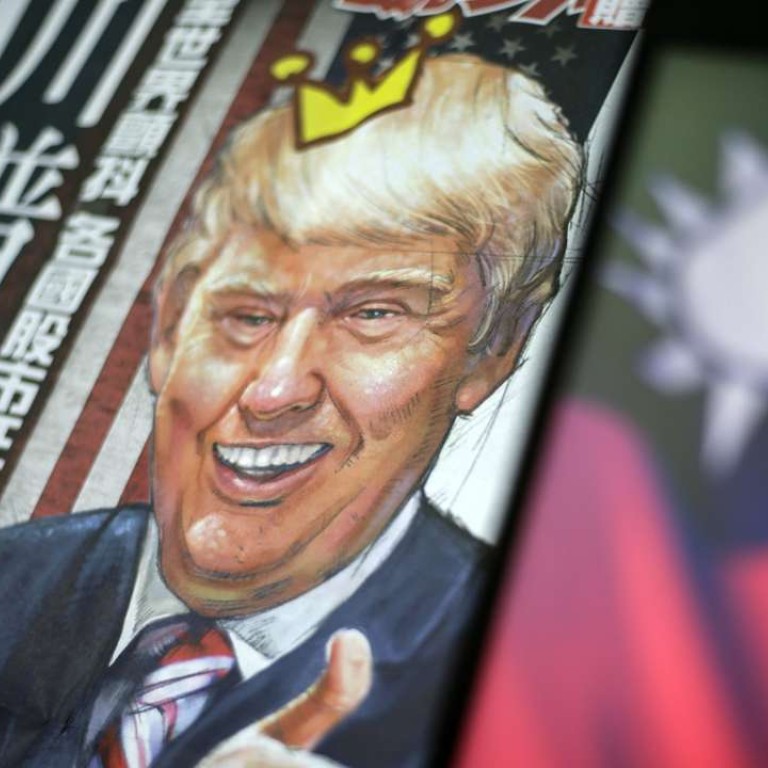
Trump and Taiwan: is the president-elect a blessing or a curse?
Self-ruled island is divided over whether the incoming US president will be a blessing or a curse
Lawmakers from Taiwan’s ruling Democratic Progressive Party are torn over the possibility of the US abandoning the one-China policy, seeing in it both an opportunity to develop global ties and the risk of a backlash from Beijing.
But observers warn that the government of President Tsai Ing-wen must beware of becoming the bargaining chip of incoming US president Donald Trump.
Trump sent shockwaves through the US and on both sides of the Taiwan Strait by saying on Sunday that he didn’t know why Washington had to adhere to the one-China policy.
Watch: China warns Trump on Taiwan comments
Legislator Tsai Shih-ying of the independence-leaning DPP said Taiwan should not have been constrained by the one-China policy from developing more substantive ties with the United States.
“Over the years, many countries have used the one-China policy to deal with Taiwan, and what Trump said could represent a chance for us to get rid of this spell,” he said, adding that this could help Taiwan develop more ties with other countries.
However, Shen Fu-hsiung, a former DPP legislator who is now a political commentator, said Trump appeared to be using the self-ruled island as a bargaining chip in order to try to get concessions from Beijing.
“But for the mainland side to concede, such a possibility is slim,” he said, adding that Tsai would be wise to create some goodwill in Beijing to help defuse the current situation.
“On the one hand, she should say thanks for the support from America, and on the other hand she should firmly say that cross-strait issues must be peacefully resolved by the two sides of the Taiwan Strait,” he said.
Beijing considers Taiwan a renegade province, and has warned other countries against forging ties with the island.
Trump first increased cross-strait tensions earlier this month by having a phone conversation with Tsai that broke four decades of US diplomatic decorum.
Tang Shao-cheng, a specialist in cross-strait relations from National Chengchi University in Taipei, said Taiwan was at risk of being hurt by a tough gesture from the mainland.
“Tsai is going to visit Central America next month, and it remains to be seen if Beijing will boost its efforts to establish ties with nations that have diplomatic relations with Taiwan,” he said.
“If the mainland reduced imports from Taiwan, the livelihood of Taiwan would be significantly affected.”
Philip Yang, head of the Taipei-based Association of International Relations, noted that although Trump said he fully understood the one-China policy, he actually did not see its essence – that it is the only principle under which Beijing will have any dealings that involve Taiwan.
Yang said other Asian nations were closely watching the development of the issue, because a serious dispute between Washington and Beijing would create regional instability.
However, Zhao Hong, a senior visiting fellow who specialises in Southeast Asian studies at Singapore’s ISEAS-Yusof Ishak Institute, said that countries in the region were not as worried about a worsening of relations between Taipei and Beijing.
“It seems Southeast Asian countries do not worry about it. Taiwan is an extremely sensitive topic for Beijing, and it is one of China’s core interests,” Zhao said.
“Even if Southeast Asian countries were used by Trump as a bargaining chip when negotiating with Beijing, the stakes would not be as high as a Taiwan chip.”
Additional reporting by Kristin Huang and Laura Zhou


